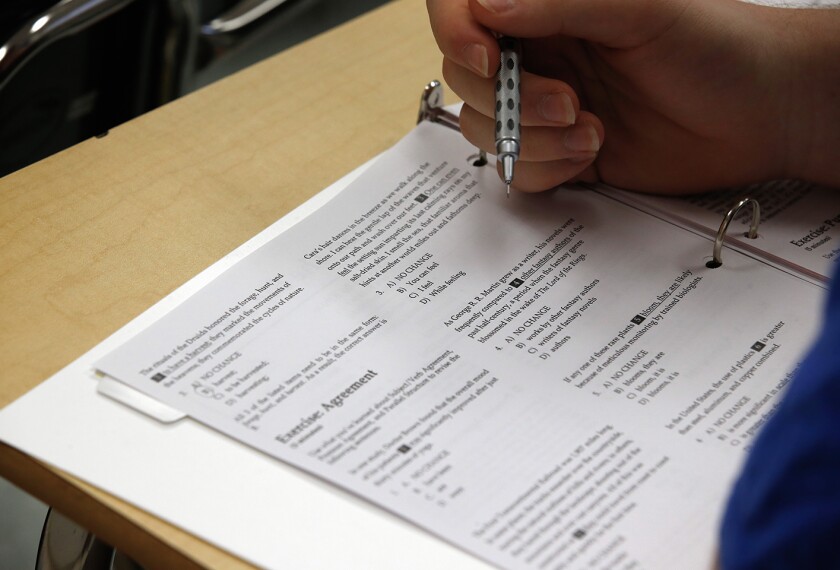Class of 2006 high school graduates scored slightly higher on the ACT college-admissions test than the class of 2005, but a majority are still likely to struggle with mathematics and science once they enter college, concludes a report released today by the sponsor of the test.
The average composite score for graduates rose to 21.1 out of a possible 36, after remaining constant at 20.9 for the previous two years, according to the Aug. 16 national score report for the second most widely used college-admissions test. The increase was the largest in 20 years, with the average score reaching its highest level since 1991.
“The results suggest that student academic achievement and college readiness are on the rise,” Richard L. Ferguson, the chief executive officer of the Iowa City, Iowa-based ACT, said in a statement. He added, however, that there is “still a lot of work ahead” to ensure all students graduate from high school with college-ready skills.
The 2006 ACT national and state scores are available from ACT.
More than 1.2 million graduates, representing about 40 percent of all graduating seniors nationally, took the test at some point in their high school careers, compared with roughly 1.4 million who took the SAT. Composite SAT scores are due to be reported later this month.
The average ACT score of male students increased 0.1 point over last year to 21.2, while female students’ average went up 0.1 to 21.0.
Test-takers across most racial or ethnic groups posted slight gains over last year. The average score for Asian-American students was up by 0.2 points, while the average scores for African-American, American Indian/Alaska native, and white students were each up by 0.1 point. The average scores of Hispanic students remained steady.
But 58 percent of ACT test-takers nationwide did not meet college-readiness benchmarks on the math test, while 73 percent did not meet the benchmarks on the science test. Only two out of 10 students met or exceeded college readiness benchmark scores on the four ACT exams in English, mathematics, reading, and science.
First Writing Results
Secretary of Education Margaret Spellings praised the results, but said she was concerned about the academic rigor of U.S. high schools.
“Today’s ACT results show a nation that is on the right track and moving forward, but far too slowly for the 21st century,” she said in a statement. “Unfortunately, less than half of all test-takers met the college readiness benchmark in math; for science, the number was one in four. This is too low. The ACT findings clearly point to the need for high schools to require a rigorous, four-year core curriculum and to offer advanced placement classes so that our graduates are prepared to compete and succeed in both college and the workforce.”
This was the first time that the ACT administered its optional writing test, which was taken by 36 percent of the 2006 high school graduating class. The average score for test-takers was 7.7 on a scale of 2 to 12, with female students scoring 7.9, compared with an average of 7.4 for males.
The report said the score results indicate that far fewer students are taking challenging courses in high school. It said that just 54 percent of the test-takers reported taking the ACT’s recommended core curriculum, which includes four years of English and three years each of math, science, and social studies. Students who took the core curriculum earned an average ACT score of 22, while those who took fewer courses scored an average of 19.7.
“One reason why such a large number of college-hopeful students fail to take the core curriculum is that many state graduation requirements have been less demanding than the recommended core,” the ACT report said.



